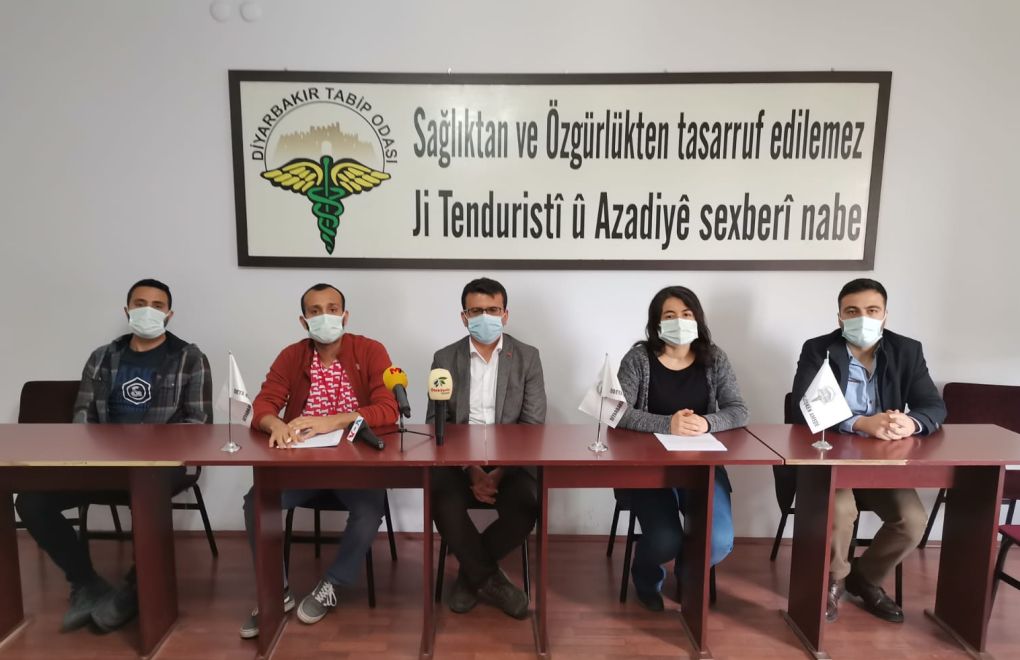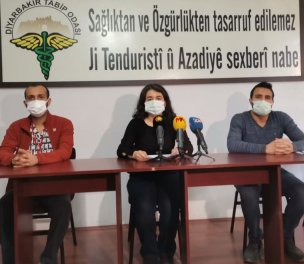* Photo: Diyarbakır Medical Chamber
Click to read the article in Turkish
The Diyarbakır Medical Chamber (DTO) has shared the findings of its report on the course of the COVID-19 outbreak in Turkey's Kurdish-majority Diyarbakır province in January and February 2021.
In a press conference held at the DTO office, the statement in Kurdish was read out by DTO Chair Elif Turan and the Turkish version of the statement was read out by DTO Spokesperson Mustafa Mesut Kaya.
'It has become harder to get an appointment'
Secretary General Kaya said that 45-50 coronavirus patients are diagnosed in Diyarbakır every day, noting that the number of cases has decreased in the province, especially in the last two months.
Saying that only 45 percent of people have so far been vaccinated in Diyarbakır, Kaya raised concerns that serious problems arise when getting an appointment for vaccination of the people aged 65 and over.
Underlining that people are having problems and difficulties in accessing the Internet-based appointment services such as the E-nabız (E-pulse) mobile application or the Healtj Ministry's MHRS system, Kaya indicated that it has also become more difficult for citizens to get an appointment via the "Alo 182" vaccination hotline as people have to wait for a long time on the line and have problems in accessing it due to the high number of people.
'Vaccination of teachers is insufficient'
Kaya also referred to the "controlled normalization" process that has been in effect in Turkey on a provincial basis since March 1. He noted that the number of cases might increase amid normalization.
"Considering the infection rate of the mutant virus across the world, we think that the normalization steps will increase the infection and affect public health negatively," said Kaya and briefly added:
"When it was planned to reopen schools, sufficient infrastructure or a physical arrangement suitable for pandemic conditions were not made.
"Teachers have been provided with vaccination at insufficient rates and opening schools in these conditions will affect public health negatively.
"Teachers and occupational groups at risk must be vaccinated immediately without any exceptions. The fragmental vaccination method over a long period of time is an element that makes the struggle against the pandemic difficult and fails to ensure social immunization."
Concluding the statement, Kaya also listed the Diyarbakır Medical Chamber's recommendations for a more effective struggle against the virus. (RT/SD)





